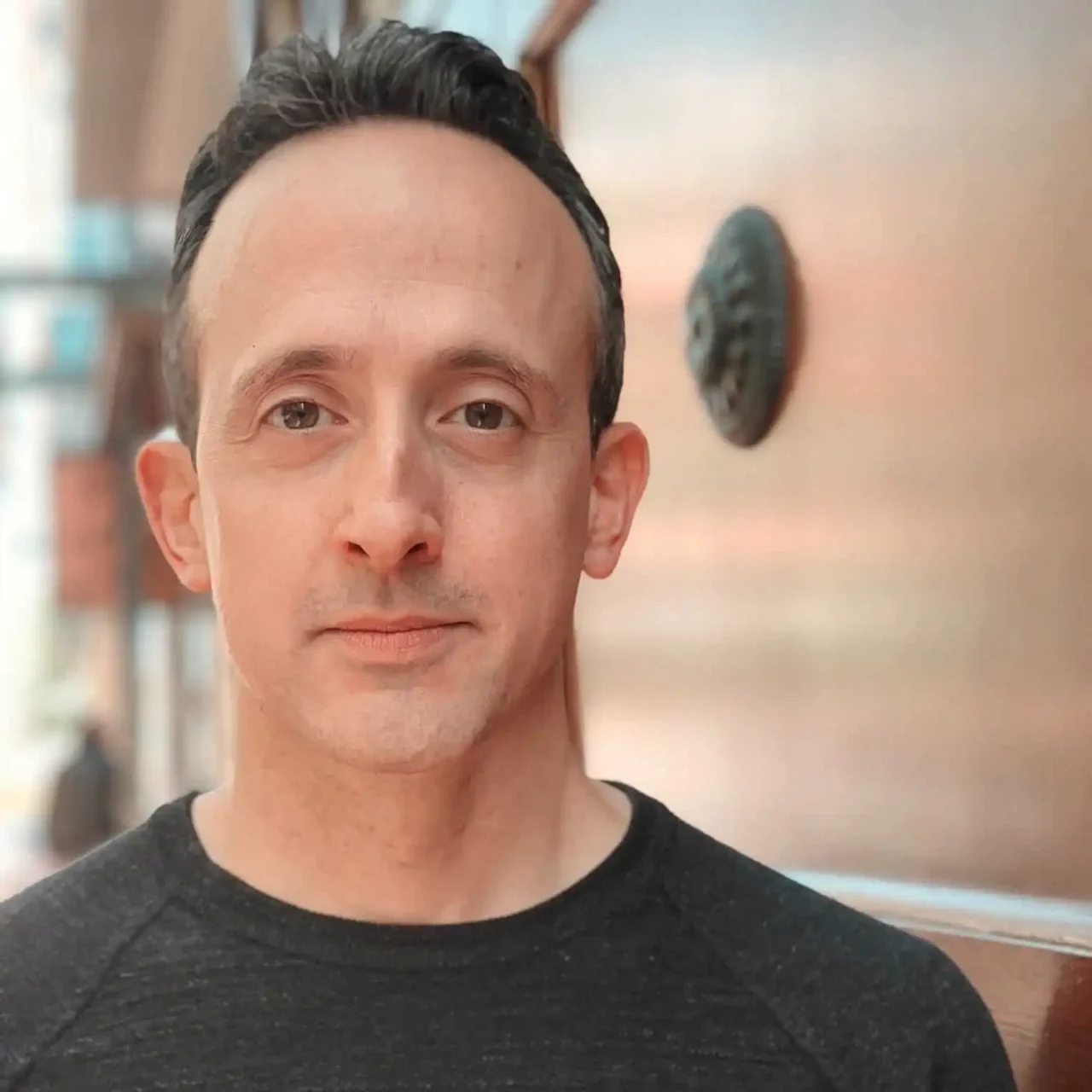Anxiety chest pain: is it just in your head?

Reviewed by Steve Silvestro, MD, Ro,
Written by Tobi Ash, MBA, RN, BSN
last updated: Apr 12, 2021
5 min read
Here's what we'll cover
Here's what we'll cover
Have you ever felt nervous or on edge? Many people know of the neurological aspects of anxiety where you feel anxious or irritable even though you aren’t in any real danger. There are also physical symptoms of anxiety in an anxiety attack, panic attack, or in people with generalized anxiety disorder. Common physical symptoms of anxiety include having a sense of impending doom or panic, sweating, heart palpitations, faster heart rate, trembling, shortness of breath, breathing very fast (hyperventilating), and feeling exhausted or weak (Chand, 2020).
The coronavirus pandemic, lockdown, and economic repercussions of 2020 made many people feel anxious and scared. While it’s normal to feel anxious or worried some of the time in your everyday life, it’s not so normal to feel it all of the time (da Silva, 2020).
One of the more alarming physical symptoms of anxiety can be chest pain. How can you tell the difference between anxiety chest pain and other serious heart conditions that may feel the same?
What are the symptoms of an anxiety attack vs. a heart attack?
The symptoms of anxiety present themselves differently, not just from one person to another but even in your own body. You might feel it in your stomach one day and your chest the next. This variation can make it a bit challenging to figure out what’s causing your physical symptoms (Campbell, 2017).
Some people are prone to anxiety attacks or panic attacks, often leading to many physical manifestations of anxiety. With a panic attack, a person can have the sensation of choking, heart palpitations, sweating, shortness of breath, and chest pain. People with a generalized anxiety disorder may have those symptoms, as well as tremors, nausea, muscle tension, and dizziness (Bandelow, 2017).
Anxiety chest pain
If you’ve never had chest pain, you might feel frightened the first time you do!
Anxiety chest pain doesn’t feel the same for everyone. Some people suddenly get chest pain even if they are at rest, common in a panic attack. Anxiety chest pain has a slower buildup, with most people already feeling anxious before the chest pain starts (Roller, 2020).
Anxiety chest pain symptoms in the chest area can feel like (Huffman, 2002):
Stabbing, sharp, or shooting pain
A constant dull ache
Burning
Tightness
Spasms
Numbness, where you can’t feel some parts of your chest
Other panic attack or anxiety attack symptoms include (Huffman, 2002):
Shortness of breath
Feeling dizzy or weak
Shaky, trembling, or out of control
Temperature changes—including feeling sweaty or cold
Heart palpitations
Chest pain
Fast heart rate
Chest pain from anxiety is more common in sudden panic attacks (Musey, 2018-a).
The first time you feel any of these symptoms, you might go straight to the emergency room thinking you’re having a heart attack. Almost 80% of people in the emergency room with chest pain have non-cardiac chest pain and are not having a heart attack. Of this group, about 58% have moderate to severe anxiety (Musey, 2018-b; Musey, 2017).
Heart attack chest pain
So what are heart attack symptoms?
A heart attack is when the blood flow or blood supply that feeds the heart itself is blocked. Heart attack symptoms include (Lu, 2015):
Chest pain that continues to get worse with exertion
Chest pain that radiates to your arms or jaw (this is called angina)
Heavy pressure in the chest area and a squeezing sensation
Fast heart rate and shortness of breath
Nausea
Some people feel exhausted or say they have back pain, and close to 30% of people having a heart attack don’t even report chest pain (DeVon, 2020).
How to tell where your chest pain is coming from
Here’s a quick “cheat sheet” with the differences between anxiety chest pain and a heart attack.
When: Anxiety chest pain happens most often when at rest, and heart attack chest pain often happens during activity. Anxiety chest pain tends to start and end faster. Heart attack chest pain builds up and continues to increase in pain (Huffman, 2002).
Where: Anxiety chest pain usually stays in the chest, while heart attack chest pain can radiate through to the arms, shoulders, and jaw (Lu, 2015).
What: Anxiety chest pain often feels much sharper with reports of a stabbing-like pain, and heart attack chest pain usually feels more heavy, aching, and with squeezing pressure (Huffman, 2002).
Who: Anxiety disorders, including panic attacks, are more common in women and heart attacks are more common in men (Bandelow, 2017; Kander, 2016).
Why does anxiety give you chest pain?
Anxiety is a stress response, and your body reacts to stress in different ways. Some sensations are purely physical, like having shortness of breath, heart palpitations, sweating, or your body tensing up.
You may have heard of the “fight-or-flight” stress response where your body gears up to fight back or run away from the stressor. If you have a lot of stress in your life, your body carries a lot more muscle tension. Some people experience this muscle tension in their chests. If you’re stressed out, this may raise your heart rate, and you can feel your heart pounding louder and stronger. These reactions together may make you experience anxiety chest pain (Huffman, 2002).
Other responses that can cause anxiety chest pain include breathing too rapidly and shallowly (hyperventilating).
Hyperventilating changes the level of carbon dioxide in the blood, causing dizziness, numbness and tingling in your extremities, and chest pain. Panic attacks can also increase the heart rate, which can cause coronary artery spasms, increased blood pressure (which strains the small blood vessels of the heart), and increased oxygen needs—all of which can cause chest pain (Huffman, 2002).
People with coronary artery disease or other heart problems may also suffer from anxiety. An anxiety attack or panic attack can exacerbate their heart issues (Greenslade, 2017).
What should you do if you experience anxiety chest pain?
Always seek medical care to get your chest pain checked out. Symptoms of anxiety/panic attacks and heart attacks overlap a bit. It’s best to have yourself evaluated in the emergency room under the guidance of an experienced healthcare professional.
If you are diagnosed with anxiety chest pain or non-cardiac chest pain, seek professional healthcare to manage your anxiety. Treatments can include cognitive behavioral therapy to manage your anxiety and, if needed, medications (Locke, 2015).
Here are some steps to manage an anxiety attack or panic attack, even with chest pain (Locke, 2015):
Breathe deeply, slowly, and steadily.
Count to 10 and keep repeating until the feeling passes.
Monitor your chest pain—anxiety chest pain doesn’t last long compared to a heart attack (Greenslade, 2017).
Focus on a calming favorite image while counting.
Those are useful, though temporary, fixes. While you may not reduce anxiety completely, lifestyle changes can help you reduce the severity of your physical symptoms of anxiety. Try these strategies to manage your anxiety (Locke, 2015):
Eat right—Increase your vegetables and decrease your sugar intake.
Exercise—Aim for at least 150 minutes a week. Bodily movement helps reduce anxiety.
Get enough sleep—Most people need at least 7 hours.
Avoid alcohol or tobacco.
Decrease caffeine—Some people are sensitive to its effects.
Chest pain can be frightening. It is important to seek medical attention from a healthcare professional to evaluate if your chest pain is non-cardiac and anxiety-related or a symptom of a heart problem. Both conditions are treatable, so make sure you get the best treatment possible.
DISCLAIMER
If you have any medical questions or concerns, please talk to your healthcare provider. The articles on Health Guide are underpinned by peer-reviewed research and information drawn from medical societies and governmental agencies. However, they are not a substitute for professional medical advice, diagnosis, or treatment.
Bandelow, B., Michaelis, S., & Wedekind, D. (2017). Treatment of anxiety disorders. Dialogues In Clinical Neuroscience , 19 (2), 93. doi: 10.31887/DCNS.2017.19.2/bbandelow. Retrieved from https://www.ncbi.nlm.nih.gov/pmc/articles/PMC5573566/
Campbell, K. A., Madva, E. N., Villegas, A. C., Beale, E. E., Beach, S. R., Wasfy, J. H., ... & Huffman, J. C. (2017). Non-cardiac chest pain: a review for the consultation-liaison psychiatrist. Psychosomatics , 58 (3), 252-265. doi: 10.1016/j.psym.2016.12.003. Retrieved from https://www.sciencedirect.com/science/article/abs/pii/S0033318216301712
Chand, S. P., Marwaha, R., & Bender, R. M. (2021). Anxiety (Nursing). Retrieved from https://www.ncbi.nlm.nih.gov/books/NBK470361/
da Silva, M. L., Rocha, R. S. B., Buheji, M., Jahrami, H., & Cunha, K. D. C. (2021). A systematic review of the prevalence of anxiety symptoms during coronavirus epidemics. Journal of Health Psychology , 26 (1), 115-125. doi: 10.1177/1359105320951620. Retrieved from https://journals.sagepub.com/doi/10.1177/1359105320951620
DeVon, H. A., Mirzaei, S., & Zègre‐Hemsey, J. (2020). Typical and Atypical Symptoms of Acute Coronary Syndrome: Time to Retire the Terms?. Journal of the American Heart Association , 9 (7), e015539. doi: 10.1161/JAHA.119.015539. Retrieved from https://www.ahajournals.org/doi/10.1161/JAHA.119.015539
Greenslade, J. H., Hawkins, T., Parsonage, W., & Cullen, L. (2017). Panic disorder in patients presenting to the emergency department with chest pain: prevalence and presenting symptoms. Heart, Lung and Circulation , 26 (12), 1310-1316. doi: 10.1016/j.hlc.2017.01.001. Retrieved from https://pubmed.ncbi.nlm.nih.gov/28256404/
Huffman, J. C., Pollack, M. H., & Stern, T. A. (2002). Panic disorder and chest pain: mechanisms, morbidity, and management. Primary Care Companion to the Journal of Clinical Psychiatry , 4 (2), 54. doi: 10.4088/pcc.v04n0203. Retrieved from https://www.ncbi.nlm.nih.gov/pmc/articles/PMC181226/
Kander, M. C., Cui, Y., & Liu, Z. (2017). Gender difference in oxidative stress: a new look at the mechanisms for cardiovascular diseases. Journal of Cellular and Molecular Medicine , 21 (5), 1024-1032. doi: 10.1111/jcmm.13038. Retrieved from https://onlinelibrary.wiley.com/doi/full/10.1111/jcmm.13038
Locke, A., Kirst, N., & Shultz, C. G. (2015). Diagnosis and management of generalized anxiety disorder and panic disorder in adults. American Family Physician , 91 (9), 617-624. Retrieved from https://www.aafp.org/pubs/afp/issues/2015/0501/p617.html?utm_medium=referral&utm_source=r360
Lu, L., Liu, M., Sun, R. et al. Myocardial Infarction: Symptoms and Treatments. Cell Biochemistry and Biophysics 72, 865–867 (2015). doi: 10.1007/s12013-015-0553-4. Retrieved from https://link.springer.com/article/10.1007/s12013-015-0553-4#citeas
Musey Jr, P. I., & Kline, J. A. (2017). Emergency department cardiopulmonary evaluation of low-risk chest pain patients with self-reported stress and anxiety. The Journal of Emergency Medicine , 52 (3), 273-279. doi: 10.1016/j.jemermed.2016.11.022. Retrieved from https://www.sciencedirect.com/science/article/abs/pii/S0736467916310125
Musey Jr, P. I., Patel, R., Fry, C., Jimenez, G., Koene, R., & Kline, J. A. (2018-a). Anxiety associated with increased risk for emergency department recidivism in patients with low-risk chest pain. The American Journal of Cardiology , 122 (7), 1133-1141. doi: 10.1016/j.amjcard.2018.06.044. Retrieved from https://www.sciencedirect.com/science/article/abs/pii/S0002914918313365
Musey, P.I., Lee, J.A., Hall, C.A. et al. (2018-b). Anxiety about anxiety: a survey of emergency department provider beliefs and practices regarding anxiety-associated low risk chest pain. BMC Emergency Medicine 18, 10. doi: 10.1186/s12873-018-0161-x. Retrieved from https://link.springer.com/article/10.1186/s12873-018-0161-x#citeas
Roller, L., & Gown, J. (2020. Disease state management: Panic disorder and panic attack. AJP: The Australian Journal of Pharmacy , 101(1197), 64-71. doi: 10.3316/ielapa.271147016375778. Retrieved from https://search.informit.org/doi/abs/10.3316/ielapa.271147016375778










